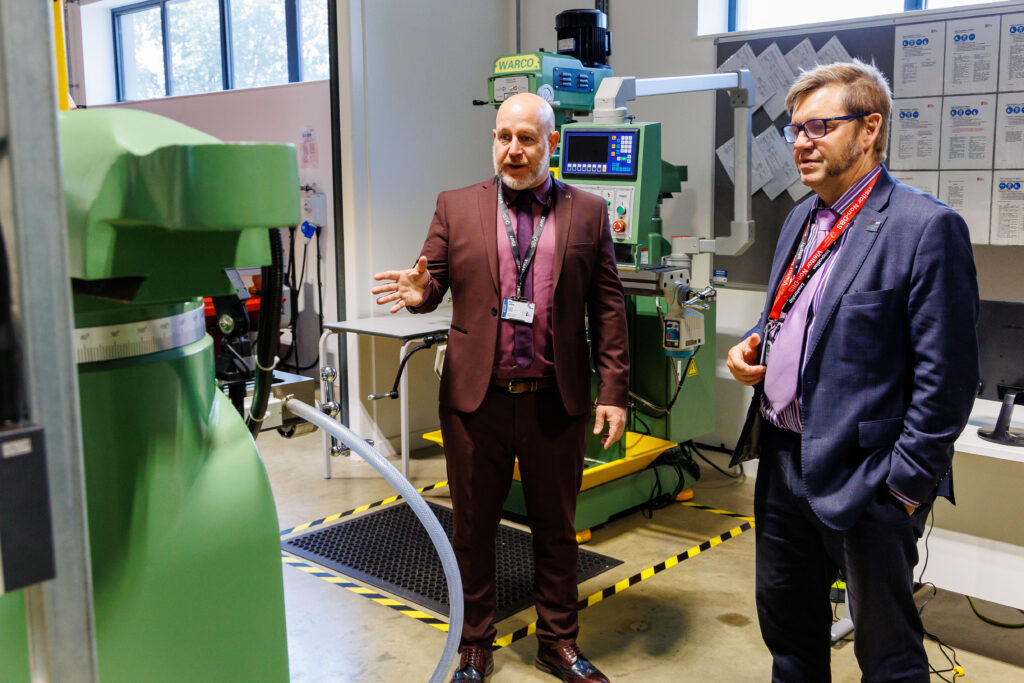MP Steve Barclay has pleaded with the Government to intervene and stop a mega incinerator being built in Wisbech. During a debate in the House of Commons this week, Mr Barclay, who reminded MPs that as Environment Secretary he had recused himself from his Tory government’s decision to approve it, said that strong arguments remained for Labour to halt it.
“With the growth of anaerobic digesters dealing with more food waste, energy-from-waste incinerators are now burning more plastic,” he said.
“BBC analysis of five years of real data shows that incinerators are now the dirtiest way to produce power.”
Mr Barclay was speaking after Stockton MP Matt Vickers had reminded the House that “the receptacles that we recycle in are a game changer.
“In Stockton, we have these disposable bags that disappear off down the road whenever it is windy, never to be seen again. Having the right recycling receptacles is important.
“As a country, we need to look to the councils that do it well, learn the lessons and roll out best practice.
“It is estimated that UK consumers go through about 14 billion plastic drinks bottles and 9 billion drinks cans every single year, often contributing to our litter epidemic.”
Mr Barclay turned to ask if he agreed “that in dealing with recycling and its growth, we should not be building more incinerators—and in particular not building the Wisbech incinerator?”
Mr Vickers contended that “putting these plants in the right place is a very big deal—I know how hard my right hon. Friend worked to prevent that. I could not agree more.
“I would be grateful if the minister could provide an update on the roll-out of the deposit return scheme and say when it is set to be delivered.
https://twitter.com/SteveBarclay/status/1866485688629178740
“Of course, it is not just businesses but local communities that can support the Government’s goals to ensure responsible waste disposal.”
Mary Creagh, the Parliamentary Under-Secretary of State for Environment, Food and Rural Affairs, said that the Labour government is “committed to the transition to a circular economy—a future in which we keep our resources in use for longer, reduce our carbon emissions and invest in critical infrastructure and green jobs in every nation and region, and in which our economy prospers, and nature thrives.
“We want to abandon our linear and unsustainable ‘take, make, throw’ model, which means that we extract resources from the Earth, make things and then throw them away, because there is no such place as ‘away’.
“If the whole world consumed resources as we do in the UK, we would need 2.5 times the Earth’s raw materials to sustain our current systems. Meanwhile, nearly 100 million tonnes of residual waste is disposed of annually, and waste crime alone costs our economy £1 billion every year.
“That cannot continue. We must and will move toward a system that values longevity, repair and reuse over disposal. In our manifesto, we pledged to reduce waste by moving to a circular economy.

“That is why we have committed ourselves to developing a circular economy strategy for England, which we will create in partnership with experts from industry, academia, civil society, local government and beyond.”
Mr Barclay replied: “I am glad that the minister has described this as a priority. She has a statutory target to halve residual waste, but what she has not mentioned is the impact that will have on mega-incinerators that are being built essentially to burn plastic.
“Does she accept that more than 30 environmental charities—charities usually linked to her party and the left—are strongly opposed to those incinerators, and will she commit herself to publishing an impact assessment on the effect of reducing residual waste on the need for incinerators?”
Mr Barclay called for an “impact assessment” which he said was awaited on the over capacity of incineration.
“In a classic example of joined-up government, many of these incinerators, including the Wisbech incinerator, are classed as nationally significant infrastructure, so decisions on them are made by the Government, not devolved locally,” he said.

“I welcome the minister saying that she does not support over-capacity of incineration, just as I welcome her ambition to increase recycling, but given that she wants increased recycling, there will be over-capacity of incineration.
“We need to see the impact assessment so that we can see the trajectory and can see the increasing rate at which waste will be recycled.
“We can then avoid the over-capacity. When will we see that impact assessment, so that we do not have too much capacity in incineration?
The minister said: “I am a bit mystified by the right hon. Gentleman’s question, because he put a stop to planning decisions on energy from waste. Did he not conduct an impact assessment beforehand?”
Mr Barclay retorted: “As a point of clarification I was recused as the minister, so I certainly did not make that decision.
“I am making the argument against incineration; I would have thought that the minister would support that, because she wants more recycling.
“Over 30 environmental charities say that incineration is the dirtiest way to produce energy—that it is as dirty as coal. Five years of analysis by the BBC found it was the dirtiest.
“I am highlighting the contradiction between the Government saying that they are for the environment and clean energy, and there being a risk of over-capacity in incineration, which burns plastics and is harmful to the environment.
“I am highlighting that contradiction and saying that that is the reason why the Government should publish an impact assessment.”
Go ahead for £450m Wisbech incinerator pulled for ‘clarification’
The minister told him: “The environmental permitting regulations prevent the incineration of separately collected paper, metal, glass or plastic waste unless it has gone through some form of treatment process first, and, following that treatment, incineration is the best environmental outcome.
“We will publish our capacity assessment before the end of this year, and we do not support incineration over-capacity.”
You can read the full Parliamentary debate here:



























